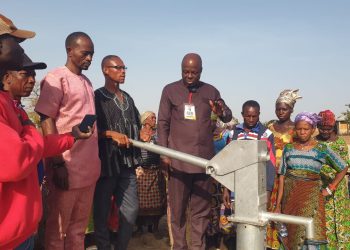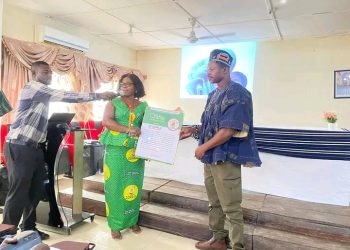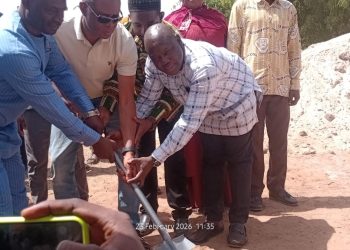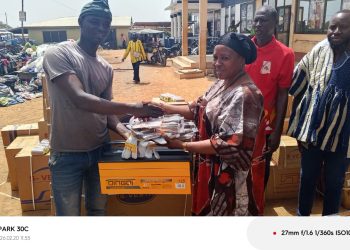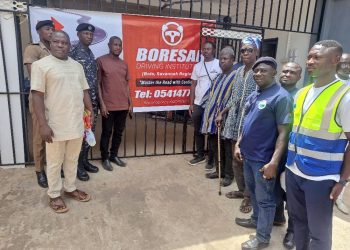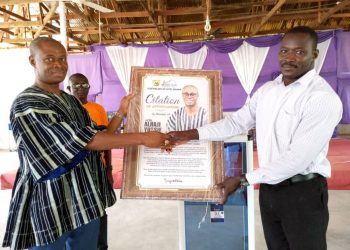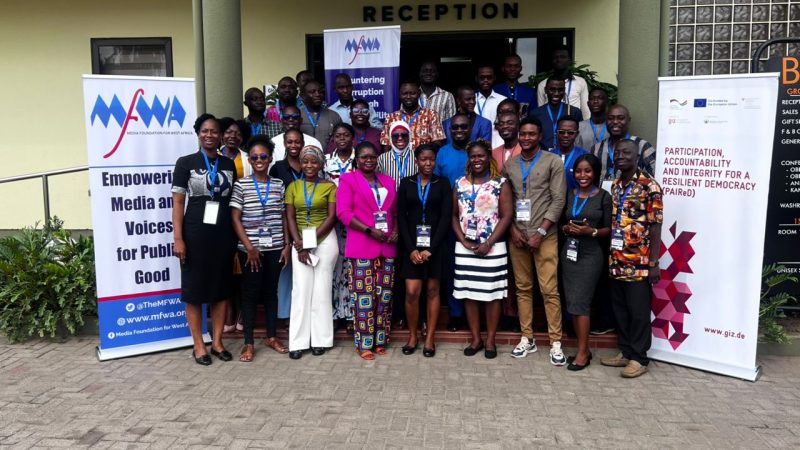
The Media Foundation for West Africa (MFWA), a leading media think tank in West Africa, has over the years empowered the media landscape in the sub-region through training, media policy advocacy, and journalist empowerment.
As part of its mandate, the foundation organized a three-part training series on Investigative Journalism and Anti-Corruption Reporting, the Use of the RTI Law, Data Journalism, and Fact-Checking. The training falls under the Countering Corruption through Accountability Journalism and Improved Freedom of Expression Environment in Ghana programme.
The initiative seeks to strengthen the capacity of the media—especially investigative journalists—to produce impactful investigative reports on corruption and promote accountability that addresses socio-economic disparities. It also aims to improve the freedom of expression environment in Ghana.
This programme is part of the Participation, Accountability, Integrity for a Resilient Democracy (PAIReD) initiative, commissioned by the German Federal Ministry for Economic Cooperation and Development (BMZ), co-financed by the EU and the Swiss State Secretariat for Economic Affairs (SECO), and implemented by GIZ in cooperation with Ghana’s Ministry of Finance.
During the first training, participants were taken through modules on Investigative Journalism and Anti-Corruption Reporting.
In her welcome address, Rosmond Ebi-Adwoa Lartey, Senior Manager for Media Democracy and Good Governance at MFWA, urged participants to take the opportunity seriously in order to excel in their careers. She told yagbonradioonline.com that the training brought together journalists from across the country to sharpen their skills and enhance their capacity to expose corruption by duty bearers while promoting accountability and good governance. She added that feedback from participants showed the training was highly impactful.
Kwaku Lartey Obeng, Components Manager at GIZ Ghana, described the strong participation as a sign of Ghana’s national commitment to accountability journalism. He stressed that corruption undermines development efforts and worsens poverty, adding that investigative journalists are democracy’s unsung heroes who risk their lives to expose corruption.
“Investigative journalism is not optional but essential,” he emphasized, while acknowledging the dangers journalists face, including threats and intimidation.
Two experts—Mr. Michael Boadi from Transparency International and Mr. William Nyarku from Corruption Watch Ghana—also contributed to the training sessions.
source: yagbonradioonline

